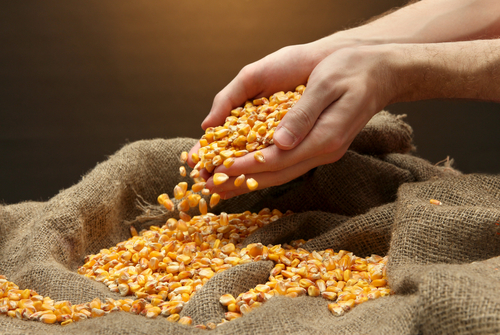How Do I Pick A Good Dog Food?
You know what they say assuming does, right? Sadly, I think, in some cases, it is true. One might think that it was safe to assume that dog food labels represent what they contain. One may also think the ingredients are listed in descending order from the most important down.
I used to think that I could make decisions about my dogs’ nutrition based on the food labels because I felt comfortable knowing that labeling is government regulated. I was always a careful label reader for my human and animal family, preferring whole foods and minimally processed ingredients. I was a wise consumer – or so I thought.
I guess I didn’t account for the fact that some manufacturers can manipulate the laws to their own advantage. They may not be dishonest, but many can be misleading. Below are listed some of the features of a dog food label that may not mean exactly what you think.
Ingredient Order
The ingredients must, by law, be listed in order by their weight, starting with the one with the highest weight listed first. But what does it mean by weight? Dry weight? What if the main ingredient is chicken weighed fresh compared with other equally important ingredients weighed dry? The chicken would weigh more because of the moisture content but actually contain fewer nutrients. So an item that naturally contains more moisture will appear higher on the list than a nutritionally dense food item that is dry. As it turns out, some of the items are weighed wet, and some are dry, and it may not be on the label which is which. The ingredient list is important, but it might not have as much information as we thought.
Related: 9 Best Dry Dog Foods
Ingredients
As animal lovers, we have been brainwashed to think that the diet must contain the things we would prefer for our own diet, but dogs are not little humans. Dogs do not like the exact same things that we do, and individual dogs have preferences. One of my dogs very definitely does not like certain foods that the other will eat with relish and vice versa. We cannot assume that just because the ingredients sound good to us that our dogs will be happy and healthy eating them.

Label Claims and BuzzWords
If you search the internet for pet food options or peruse the dog food aisles, you will surely see claims like “hypoallergenic” and “super-premium.” These tag words are not legally defined. Anyone can claim their diet is “highly digestible with high-quality ingredients.” There aren’t many ways to prove or dispute these claims and it would be a strain on the budget and time. You just have to assume that they have done some testing or have facts to support their label claims. But no one is holding them accountable for these terms. There are terms that are legally defined and monitored by government agencies, but not every label claim can be. Companies can even legally use terms on their website that are not allowed on the printed label, so be aware.
Formulation
Who formulated the diet? A reputable pet food company should have a veterinary nutritionist on staff, and this person should be available for consultation about the diet(s). If a diet was formulated by a layperson using only the legal guidelines, the diet might not be the best choice for your dog’s longest and best life.
Packaging
Selling pet food is a business, like any other. There are marketing teams to design label layouts and advertising campaigns to ensure people think their brand is the best. The brand you see on TV might be the best for your dog, but don’t just assume it is. Ask questions. Call the company. Find out where they source their ingredients. Don’t be drawn in by a pretty picture and fancy jargon.

I don’t shop for pet food by reading labels anymore, and I don’t recommend it to my clients. I read research papers. I pick brands with live people willing to talk to me about their products. I find veterinarians (like veterinary nutritionists) who have more knowledge on the subject than I do, and I talk to them and attend their classes. Then I try to pass my education on. iHeartDogs has put together a great list of Best Dog Foods to help readers choose from the best options on the market.
You still get what you pay for (as in everything) but take the time to ask a professional so that you know what you are getting and what you are paying for. Truly high-quality diets will never be cheap, but a high price tag alone does not ensure quality.
Research and development and laboratory testing all cost money. National ad campaigns do too. I am much less likely to suggest or purchase pet food that I saw on national TV because I would prefer they spend their money on Research and Development. Don’t be dazzled by fancy websites and convincing advertisements alone.
Just because you have been told by actors that something is good, don’t forget to ask your veterinarian. He or she knows and cares about you and your pets personally and will be able to help you sort through the misinformation out there, and although all dogs have specific requirements, each one is an individual with his/her specific likes and needs.

 Toledo, United States.
Toledo, United States.